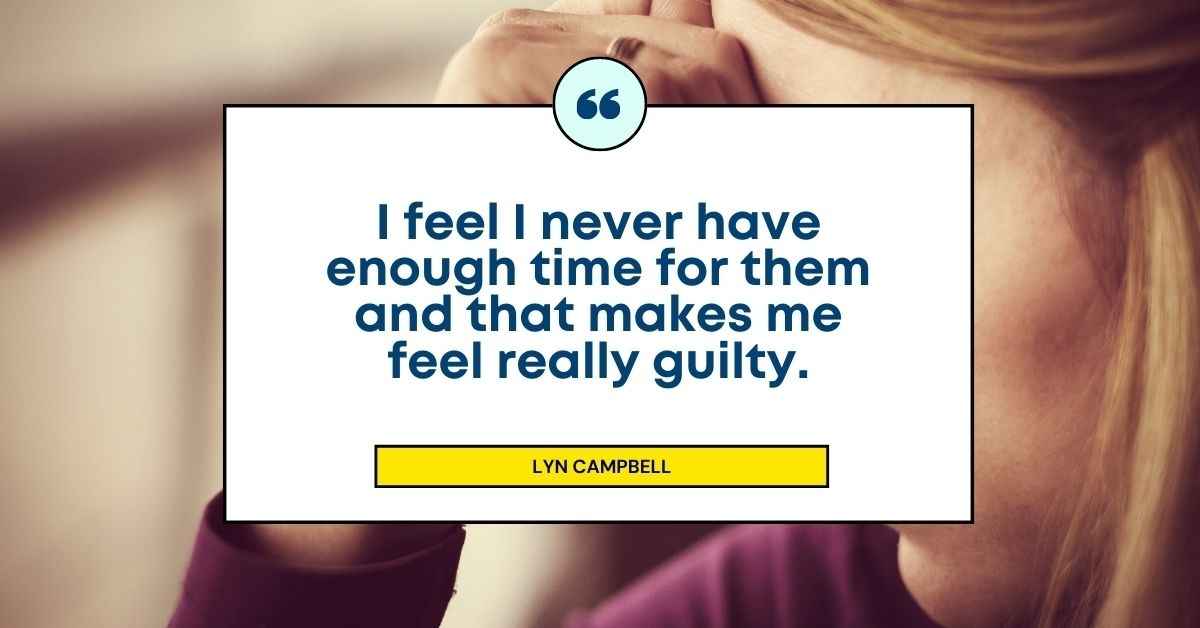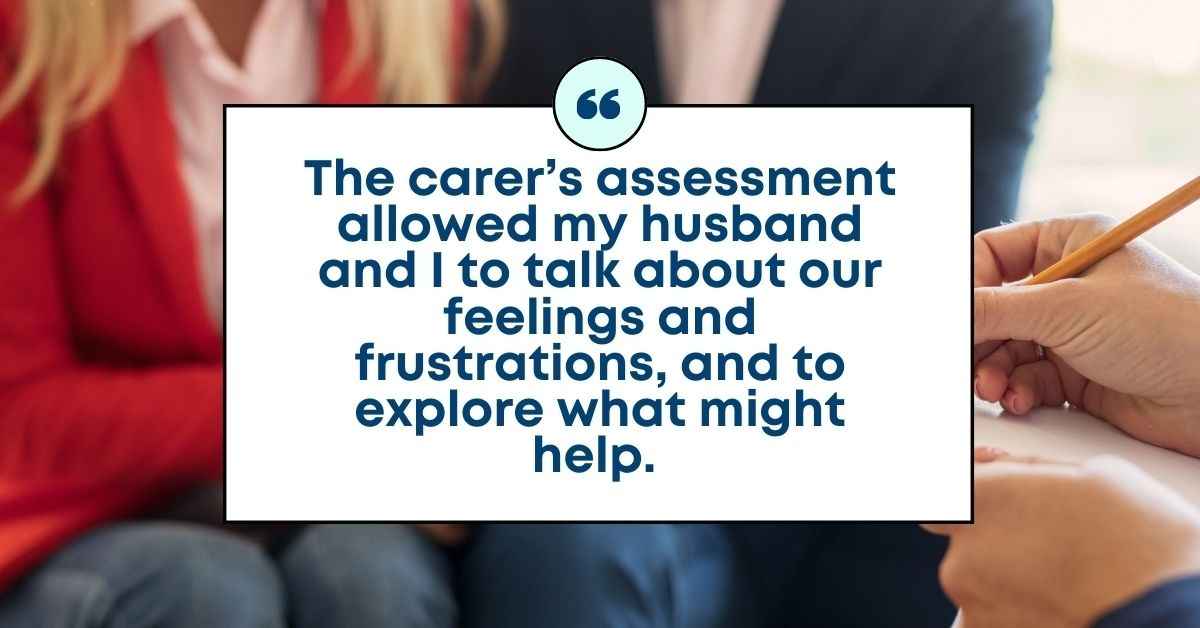Reviewed By Pamela Kirkpatrick - Senior Accredited NCS & Registered Member MBACP Adv. Dip.
The Impact of Caring
07 May 2021
Living with caring responsibilities can be challenging, especially in how it can impact the wider family.
Lyn Campbell shares her family’s experience of caring for her 14-year-old son, who has Autism, OCD, ADD, severe anxiety and phobias. Find out how Lyn got the support her family needs and the steps she took to get it.
Life as a carer
I get up at 7.30am to get the children ready for school. After I wake my 14 year old, I try to convince him to take his medication and eat something. His OCD means he has to prepare his own food and he cannot eat anything anyone else cooks or touches. He requires constant prompts and supervision. If things aren’t right for him, he becomes very anxious and upset.
The mornings are very challenging. I feel I’m always shouting at my other boys to hurry up; to eat their breakfast, brush their teeth and pack their lunch. I feel I never have enough time for them and that makes me feel really guilty. I’m sure they must get fed up with me always asking them to do things. They used to ask if they could bring a friend home after school, but I always said no and they don’t even ask anymore. I feel I’m always on edge waiting for the next meltdown. It’s exhausting.

Researching support options
Since my 14 year old quit going to school, my husband and I had to stop working to look after him. We were both at the end of our tether trying to survive on benefits and we found ourselves exhausted, frustrated and cross with each other and the kids.
In desperation, I searched online for support for carers and learned that one of us could claim Carer’s Allowance for £67.60 per week – not much, but every penny helps. I found out that one of us could earn up to £128 per week while getting CARER’S ALLOWANCE and we were eligible to apply for this because our son is in receipt of DISABILITY LIVING ALLOWANCE (DLA). We decided my husband would apply for Carer’s Allowance while working a 15-hour post in a local supermarket, which has been a great help with our finances
Getting support
Another mum suggested I contact my son’s social worker to see what help they could offer. I hadn’t heard from him in over three years, and after six phone calls and many left voicemails, I was ready to give up. He eventually contacted me and arranged a visit to reassess my son’s needs. The reassessment went much better than I thought it would. He didn’t know our son no longer attended school and that his OCD had become severe, so he put in place a care plan for our son and arranged a visit from an occupational therapist to see what support they could provide him.
The social worker told us we were both entitled to a CARER’S ASSESSMENT to look at how caring for our son impacted us and our family. I had never heard of a carer’s assessment and I was a bit frightened in case they thought we weren’t looking after him properly and would take him into care. But the social worker reassured me that it was to see what help they could provide to us as carers. He left us an information leaflet and said he would talk to us about it on his next visit.

The result of our social worker’s support is my son having a care worker every morning and evening, which allows my husband and I to focus on our other two sons. Thankfully, with their support, there’s a lot less shouting and fighting at home.
The Occupational Therapist recommended some online educational sites, which would mean our son could continue with his education while at home. She made a referral to education support in our area and suggested some apps which might help our son deal with his anxiety and have been really useful. With the support of the Educational Officer, our son is able to attend school two mornings a week.
The carer’s assessment allowed my husband and I to talk about our feelings and frustrations, and to explore what might help. It was really the first time we had talked about everything and we both felt it would be good to be able to do something on a weekly basis with our other two sons. The social worker agreed and put in place a four-hour respite visit every Thursday evening from 6pm – 10pm.
This support, in all its varieties, has made such a difference to my husband and I’s relationship and our relationship with our sons. We’re now able to enjoy family outings, which we couldn’t before, such as going to the cinema, swimming or going for a walk.
The impact of caring on the family
At the start of a new school year, I realised our 16 year old was falling behind in his studies. He didn’t want to go to school and complained he ‘felt sick’. He wasn’t his usual self, and he seemed really down and fed up. He was getting into trouble for not having his homework completed, which he was struggling to complete due to his younger brothers’ behaviour. He was also very tired in school because of disturbed sleep as he shares a room with his brother.
I decided to make an appointment with his teacher. She wasn’t aware that my son was helping to look after his younger brother nor how difficult it was for him to complete his homework – once she knew, she was very understanding. She told me he was a ‘young carer’, something I hadn’t realised before, and once I did, I felt guilty and cried a lot.
When I thought about it, I realised how much I depended on him to help with his brother’s care. I often asked and expected him to spend time with his brother, so I could get on with other things around the house. I wouldn’t suggest he bring friends home as I was worried about his brother’s behaviour if someone different came into the house. I would ask him to help his younger brother with his homework, overlooking the fact that he had his own work to complete.

A teacher’s support
The teacher said it was good that she knew as she was able to put measures in place to support him. She arranged for my son to use the library during his study periods and he was given permission to do his homework during these times. She also gave him extra time to submit his homework to help reduce the stress and pressure he was feeling. She also arranged some extra support to catch up with the subjects he was struggling with.
After a few weeks things started to improve – my son was more like himself and seemed happier. Talking to his teacher was the best thing I did and I have arranged an appointment with my youngest son’s teacher to make her aware of our home situation.
His teacher sent me home with information about Barnardo's Young Carer Program, which supports young carers and brings them together for support and social activities. Both the boys now attend and they love going. It’s great that they can meet other young carers who understand the impact of caring for a sibling. It’s taken away their fear of sharing and talking about caring.
A word to carers
Be kind to yourself and remember to look after your mental health & wellbeing. I realise now that I need to look after myself so that I can deal with everyday life. My friend suggested doing a free online mindful course, which I found helpful as it’s taught me a range of coping skills and strategies. I couldn’t recommend exploring mindfulness enough, it really helps with the pressures of being a carer.
I also joined a couple of carers’ forums where I could chat to others living a similar experience and I recommend anyone in the same situation to connect with support groups online or locally. It helps to have the support of those who have gone through the same process. Remember: it’s good to talk.
Get Inspired Further
My Experience The Starfish
Lauren explains how finding purpose, exploring meditation, and challenging negative thoughts helped her thrive, not just survive after a diagnosis of Bipolar Disorder.
what is macmillan health and wellbeing service
I’ve been affected by cancer. How can Macmillan Health and Wellbeing Service help me?
Lets talk about Dementia
Are you struggling with memory issues? Therapist Sean Hughes of SPH Therapy explores memory loss, dementia & when to seek help.



